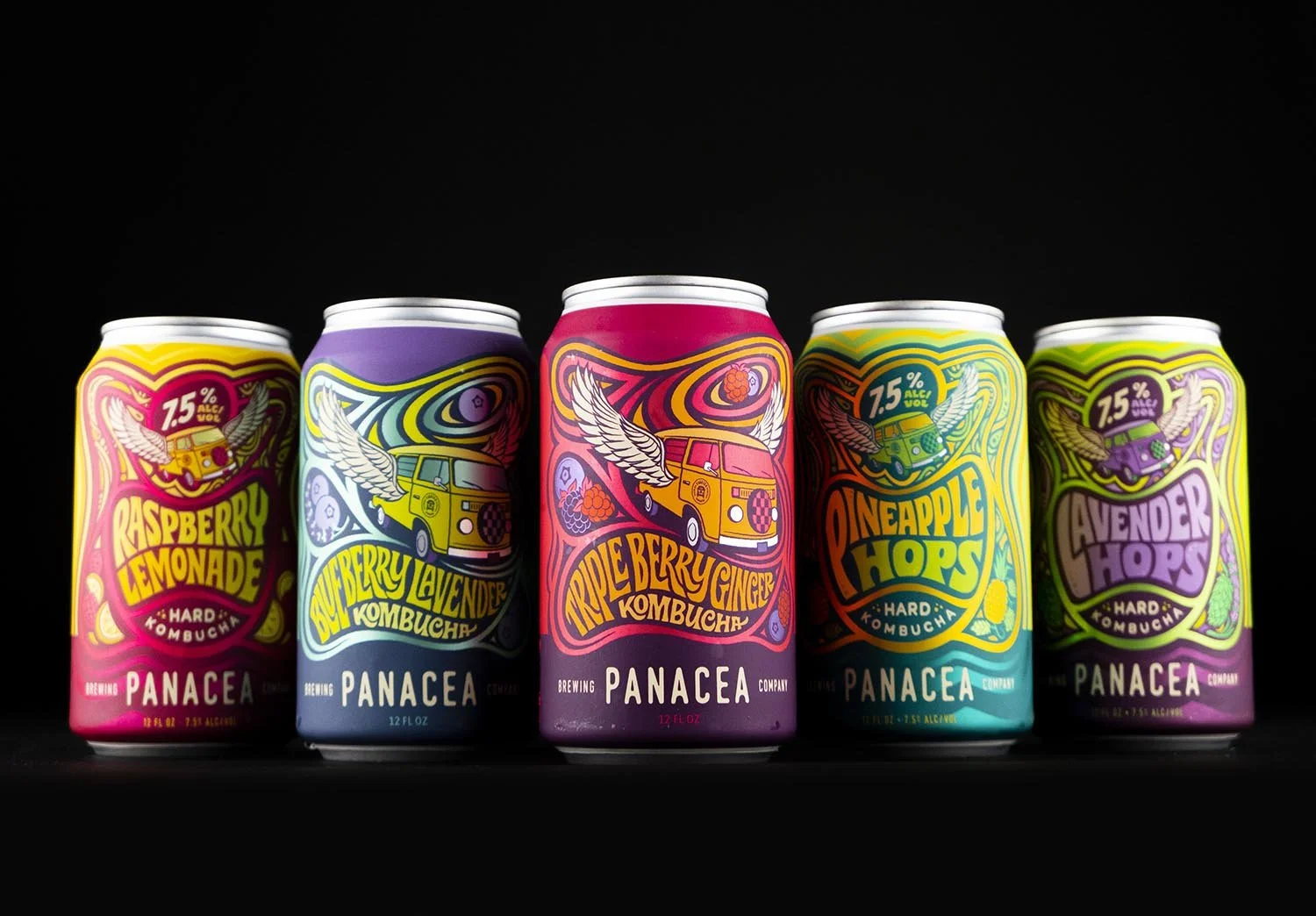Before the pandemic, it seemed that being a hyper local craft brand was a great idea. Then, the doors of all our favorite local retailers suddenly closed and the only places folks really frequented were grocery stores. This put our little kombucha business in quite a scary position. It became clear that we needed a better plan, one where we could reach more people, regardless of pandemic pressures.
Cans, it only made sense, especially living in a beach town. We invested in a Twin Monkeys Gunnison canning line, a huge expense for our tiny company. We chose our two flagships non alcoholic flavors that we had previously been bottling with a manual 4 head filler (Blueberry Lavender and Triple Berry Ginger), and 3 hard kombuchas (Lavender Hops, Raspberry Lemonade, and Pineapple Hops) to can. Local branding powerhouse, Creature Theory designed our labels.
Panacea in cans, the perfect choice for the beach or boat
We christened the canning line on February 18th. After a few little hiccups, we successfully filled 4 skus of cans, in less time than it would have taken to label the glass bottles using our old system. Wow! This machine is going to change our lives!
Alex Urquhart, head brewer, Panacea Brewing Company
Now that we’ve got the horsepower, it’s time to hit the streets! If you love Panacea, please ask all your local retailers to start carrying our new cans.
Wholesale inquiries can be made to:










